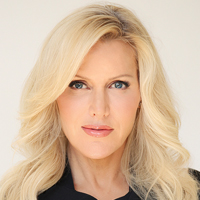
In Part 1 of this series, I discussed the financial ramifications when one partner in a relationship decides to retire before the other. I covered the conversations that advisors need to facilitate with clients concerning medical insurance coverage, savings, budgeting for the change in income and more.
But as I mentioned in that article, many of the challenges facing couples looking at “split retirement,” though not strictly financial, are just as vital for the ongoing health of the relationship. As a trusted counselor, you owe it to yourself and your clients to make sure they’re giving adequate consideration to the “emotional software” that will run their retirement lifestyle.
Let’s face it: Just because the “bug in the system” doesn’t directly involve the household finances, that doesn’t mean it couldn’t have financial ramifications. (Have you checked out the cost of couples’ therapy recently?) And besides, when we say we place clients’ best interests first, we shouldn’t put dollar-sign-shaped brackets around that statement.
My Space, Your Space, and Our Space
I wish I had kept count of the number of women who have complained to me about their retired husbands being “under foot.” But it’s not just men who are the offenders here. Especially now, after the pandemic, with so many more people pursuing their careers from a home office space, the choreography around working space vs. shared space is more complex than ever.
Further, this trend isn’t likely to go away, no matter what happens with the coronavirus. According to recent figures from the Pew Research Center, a preponderance of those who began working remotely as a result of the pandemic say they would prefer to continue working from home after the outbreak ends. Additionally, those with higher incomes are more likely to say that their work can be done from home.
All this means that it’s important for a “split-retirement” couple to communicate and agree on what space “belongs” to the spouse working from home, and during which hours. Encouraging your clients to think about this beforehand will reduce the likelihood of someone intruding on an important Zoom conference — possibly becoming an internet meme in the process — and disrupting the working spouse. Your clients will be grateful you helped them plan ahead.
Whose Time Is It, Anyway?
A change in the retired spouse’s daily schedule may also indicate the need for a reallocation of household duties, but the working spouse may need to be careful about making assumptions regarding the retired spouse’s time availability — and vice versa. For example, it would be easy for the working spouse to expect the retired partner to have plenty of time to pick up the dry cleaning, handle the grocery shopping, bring the grandkids home from school or perform other tasks that may have been divided differently when both were working.
But what if the retired spouse’s plans include increasing the time spent in volunteerism, focusing more time on a hobby, on solo travel or even launching a new, post-retirement career? We all ought to know by now — though many of us forget — that “retirement” doesn’t always mean “time on your hands.”
On the flipside, the retired spouse may have the expectation that the working spouse will be able to take off at the drop of a hat for an extended visit with friends and family or for a spontaneous vacation — potentially an inaccurate and unfair assumption.
As a trusted advisor, you can help your clients avoid unpleasant conflicts over time management by encouraging early and open discussions about expectations around how the retiring spouse expects to spend their time.
Change Is the Only Constant
A healthy and satisfying retirement should avoid stagnation. This means that both partners should be prepared for changes that occur as a part of the retired spouse’s continuing life journey.
Serving as a docent at a local museum may generate new acquaintances and friendships; a new hobby may draw new faces into the circle. The working spouse should be aware and open to the understanding that just because their partner has retired, their life experiences are still unfolding and developing. In fact, retirement can often stimulate surprising new aspects of a spouse’s personality.
How might such changes affect the relationship? Are both partners prepared for learning about and appreciating emerging traits, interests and behaviors? You can help guide them through these questions in a neutral, non-threatening environment.
More Than the “Money Coach”
As you can see, these non-financial matters involve questions that need serious consideration, and as the clients’ financial advisor, you’re in the perfect position to be asking them. While it’s true that they may be accustomed to looking to you specifically for financial guidance, your clients will appreciate the fact that you are taking a more personal interest in their overall well-being. That, in turn, will lead to greater trust and openness — and don’t we all want to know our clients as thoroughly as possible?
Emerging research is demonstrating, in fact, that our clients want to see us as a resource for more than just their investments and other financial planning. I know that in my own practice, some of the most significant progress with married clients has occurred around my efforts to help them discover more about themselves and their partner.
With a topic as emotionally loaded as retirement — especially when one spouse is doing it and the other isn’t — it’s a mark of fiduciary care to place yourself as close to the center of the discussion as possible.
Kimberly Foss, CFP, CPWA, CFT-I candidate is president and founder of Empyrion Wealth Management and author of “Wealthy by Design: A 5-Step Plan for Financial Security.” Kimberly combines a technical expertise with a real passion for her work with her clients, including family stewards, women in transition and thriving retirees. She regularly shares her financial expertise with leading media outlets. In 2021, Kimberly was named to Investopedia 100 Top Financial Advisors and recognized with the ThinkAdvisor LUMINARIES award.







